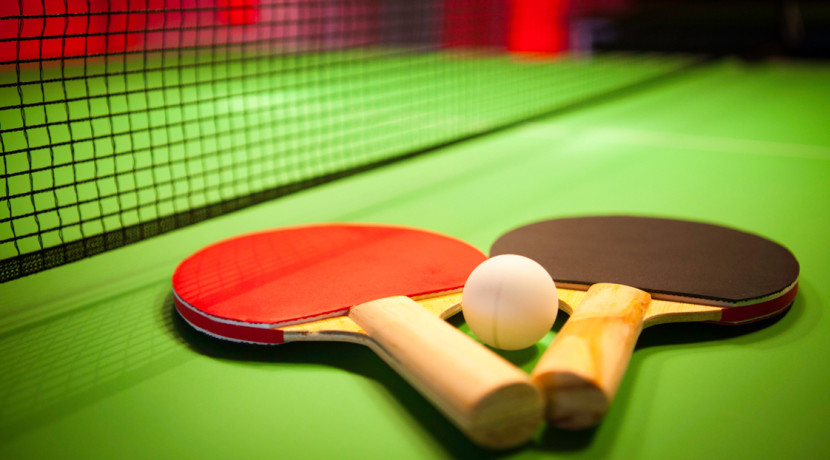
Ping pong has been touted as an excellent way to get both cognitive stimulation and physical exercise. It is also social, both live and using the Oculus Quest virtual reality (VR) system. During COVID I have been playing ping pong with my son, who lives in another state. We can carry on a conversation and be social while playing the game. And the best part of playing it with a VR system is that we don’t have to chase after the ball whenever it leaves the table!
Apparently, even people with Alzheimer’s and Parkinson’s disease can play ping pong. Researchers at Mayo Clinic showed improvements in people with dementia when they played ping pong. Then in the 1990s two Japanese neuroscientists studied 3000 older ping pong players and discovered that this sport uniquely activates as many as five separate parts of the brain simultaneously. They observed physical, mental, and emotional improvements that included no longer requiring wheelchair assistance for walking, and a drop in acute depression.
In 2016, scientists performed before-and-after cognitive tests and brain scans on healthy men and women 60 years old and older who played ping pong for one hour twice a week for ten weeks. They showed improvements in cognitive scores, growth of neurons in the hippocampus — a key area for memory and learning — and increased thickness of the cortex, a brain region needed for higher thought processes. This was especially important because the cortex is a part of the brain that shrinks the most with aging. A study of 164 Korean women aged 60 and older showed that table tennis improved more brain function than dancing, walking, gymnastics or resistance training.
Wendy Suzuki, professor of neuroscience at New York University, believes that ping pong enhances brain function in a way no other sport can. The fine motor control and hand-eye coordination involved with dodging and diving for the ball engage the primary motor cortex and cerebellum, areas responsible for arm and hand movement. By anticipating an opponent’s shot, a player uses the prefrontal cortex for strategic planning. Studies have found that ping pong helps older players improve function of the frontal lobes of the brain, which regulate decision making, problem-solving, and voluntary movements. Having to calculate the speed, spin, and placement of the ball, usually in less than a second, keeps the brain fully engaged.
In 2007, sports enthusiasts in Los Angeles established the Sport and Art Educational Foundation there. It is the only organization in the U.S. that uses ping pong as therapy for patients with early-stage Alzheimer’s and various forms of dementia.
“Ping pong, which is also called table tennis, is a form of aerobic exercise that has been shown in the general population to improve hand-eye coordination, sharpen reflexes, and stimulate the brain,” study author Ken-ichi Inoue, MD, of Fukuoka University in Fukuoka, Japan, said in a press release. “We wanted to examine if people with Parkinson’s disease would see similar benefits that may in turn reduce some of their symptoms.”
In their study, people with Parkinson’s participated in a ping pong exercise program once a week for six months. The 12 participants were 73 years old on average and had been diagnosed with Parkinson’s for an average of seven years. First, the researchers tested them to assess the types and severity of their symptoms. This six-month program was developed specifically for Parkinson’s disease patients by experienced table tennis players from the department of Sports Science of Fukuoka University. Parkinson’s symptoms were evaluated again after three months and at the end of the study. At both three months and six months, study participants showed significant improvements in speech, handwriting, getting dressed, getting out of bed and walking. Study participants also experienced significant improvements in facial expression, posture, rigidity, slowness of movement and hand tremors.
In 2017, on the east coast, Nenad Bach and Art Dubow founded Ping Pong Parkinson’s to help people treat symptoms of the disease and have fun at the same time. Ping Pong Parkinson has its own program developed specifically for people with Parkinson’s and holds weekly meetups at their Pleasantville, New York, headquarters. They have found that patients with Parkinson’s show improvements not only in motor functioning, but also become more alert and able to hold attention and focus.
American Academy of Neurology. (2020, February 25). Picking up a ping pong paddle may benefit people with Parkinson’s. ScienceDaily. Retrieved February 27, 2021 from www.sciencedaily.com/releases/2020/02/200225171757.htm